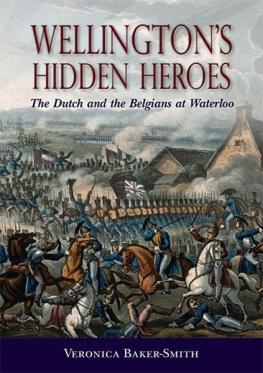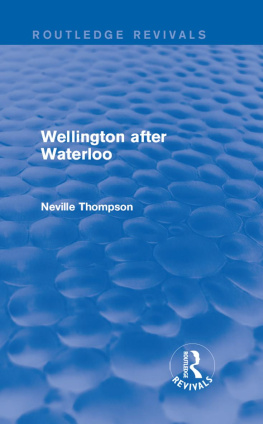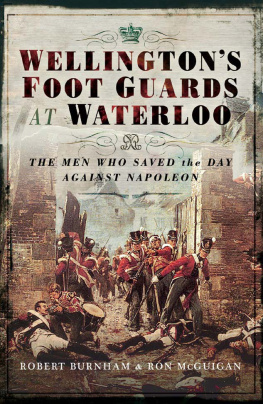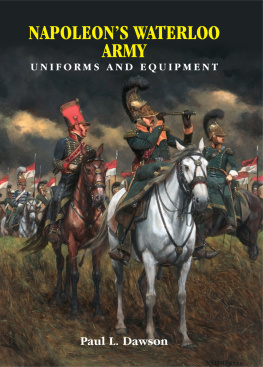
Published in Great Britain and
the United States of America in 2015 by
CASEMATE PUBLISHERS
10 Hythe Bridge Street, Oxford OX1 2EW, UK
and
908 Darby Road, Havertown, PA 19083, USA
Casemate Publishers 2015
Hardcover Edition: ISBN 978-1-61200-332-0
Digital Edition: ISBN 978-1-61200-333-7
A CIP record for this book is available from the British Library
All rights reserved. No part of this book may be reproduced or transmitted in any form or by any means, electronic or mechanical including photocopying, recording or by any information storage and retrieval system, without permission in writing of both the copyright owner and the above publisher.
The right of Veronica Baker-Smith to be identified as the author of this work has been asserted by her in accordance with the Copyright, Designs and Patents Act 1988.
Typeset and design by Casemate Publishers
Printed and bound in the UK by TJ International
For a complete list of Casemate titles, please contact:
CASEMATE PUBLISHERS (UK)
Telephone (01865) 241249
Fax (01865) 794449
Email:
www.casematepublishers.co.uk
CASEMATE PUBLISHERS (US)
Telephone (610) 853-9131
Fax (610) 853-9146
Email:
www.casematepublishing.com
For Susannah
Contents
Acknowledgements
The preparation of this book has incurred debts on both sides of the North Sea.
In the Netherlands I have had the privilege and pleasure of many hours of working in the Royal Archive at The Hague, where Drs. Charlotte Eymael, the Director, and her staff have been unfailingly courteous and immensely helpful in their suggestions. They have also allowed me to reproduce some important images from their collection which have not been seen in English work, and I thank them most sincerely. I am grateful also to the staff of the Nationaal Archief in The Hague and to the Historischcentrum in Zwolle. The interest shown in my work by Jan de Hond of the Rijksmuseum, Amsterdam, has been much appreciated, and his colleague, Eveline Sint Nicolaas was able to explain to me some of the finer points of the images from their collections. I also benefitted greatly from a long conversation with Jeroen van Zanten, whose recent biography of Koning Willem II has been an important resource. My friends, Maud Peereboom-Engelberts and Martien Kappers-den Hollander, have been assiduous in drawing contemporary material to my attention, and checking references for me. The tolerance shown by all of these to the presumptuous attempts of a buitenlander to expound their history will, I hope, be repaid by the recognition at last, on this side of the North Sea, of the true contribution made by their country to the climactic Campaign against Napoleon.
In England also the debts are considerable first and foremost to Professor Saul David who has supported the project at all stages of its development, even to the extent of reading through the finished manuscript. His advice and encouragement have been both a stimulus and a reassurance. Anyone engaged in the study of such a major event as the Waterloo Campaign is, of course, indebted to the work of many others the stimulus (and sometimes provocation) I received from them should be evident from my footnotes, but I also gratefully acknowledge them here Finally, and of course by no means least, I must thank Casemate, and especially my editor there, Clare Litt, for her commitment and her patient acceptance of a certain amount of technological inadequacy.
Introduction
T HE DUKE OF WELLINGTON described the Battle of Waterloo as the most desperate business I ever was in I never was so near being beat. The courage and sacrifice of British soldiers on 18 June 1815 has been rightly recognised and eulogised, but the fact that one-third of the Allied Army which gave him his narrow victory that day were actually subjects of the King of the Netherlands, Dutch, Belgian and German, is only now receiving any acknowledgement. As the two hundredth anniversary of the Waterloo Campaign is celebrated, this work reveals the vital contribution of those men through the analysis of Dutch sources both primary and secondary and some French ones, very few of which have been studied by English-speaking historians, except in translation. Such analysis uncovers a new side to the well-worn story.
The efforts of the Congress of Vienna to re-draw the map of Europe after twenty years of Napoleonic rule included the creation of the Netherlands, combining the ill-matched countries of Belgium and Holland (both previously annexed by France), and placing them under the rule of an untried prince of the House of Orange-Nassau. When the leisurely deliberations of the Congress were interrupted by Napoleons return from exile on Elba, it was for Wellington, in the words of Tsar Alexander of Russia, to save the world again; at the beginning of April 1815 he arrived in Brussels to take command of an army, consisting of roughly one-third British, one-third German (Hanoverian and Kings German Legion) and one-third Netherlanders. The first two elements were familiar to him and he had commanded them before in the Peninsula his five-year campaign against the French in Portugal and Spain and elsewhere, but the third was an unknown quantity, and his distrust of it was to have a far-reaching, and almost disastrous, effect on the whole campaign.
The challenge for the Netherlands had begun eighteen months previously as the newly installed Prince-Sovereign attempted to build and equip an army while combining two disparate nationalities within it. His achievement is studied here, for the first time, in detail, and the difficulties of training and logistics examined, but the overriding problem from the British point of view was that the military experience of almost all the Dutch-Belgian officers had been gained in French service the fact that they had previously fought for the Corsican ogre rather than against him was, understandably, seen by their allies as highly likely to lead to cowardice or disloyalty and even treason. Such assumptions would profoundly affect events before and during the campaign, and it has influenced the attitude of many historians ever since. The peripheral nature of the Dutch language has meant that the Netherlands has never been able to challenge the British Myth of Waterloo which has so successfully concealed its achievement. Blchers Prussians have been given their due, but, if they are mentioned at all, the Dutch-Belgians are often the subject of derision and contempt while, to quote the complaint of a Dutch historian at the end of the nineteenth century (whose work appeared only in French), only the English were heroic, only they defeated the great emperor, only they overran France. British pride in the courage of their soldiers on those four June days in 1815 is entirely justified, but it should not involve ignoring or denigrating those who shared in the sacrifice.
At Quatre Bras a Netherlands force, outnumbered by three to one, prevented Marshal Ney from advancing across the strategic crossroad and up la grande chausse to Brussels hours before Wellington could hope to concentrate the widely scattered forces he had arguably misplaced. It is now generally accepted that the Dukes strategic planning for the campaign was flawed, and the untapped Dutch sources starkly reveal his error; respect, if not veneration, for his tactical genius on the field has prevented a proper study of the very real debt he owed the Netherlanders for saving him from the consequences of his grave miscalculation before the battle of Waterloo even took place. Those few Netherlanders gave their Commander the time he needed to ensure that his final battle could be fought on ground of his own choosing and with a concentrated force.
Next page










